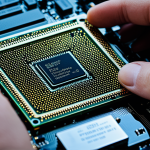Actionable IoT Marketing Strategies for the UK Market
Understanding IoT marketing UK means targeting where connected devices can most impact campaigns. Prioritising areas such as retail environments, smart homes, and automotive sectors allows marketers to embed IoT strategies for marketers that enhance reach and engagement. For instance, leveraging smart devices and connected platforms provides rich data streams, enabling brands to personalise messaging effectively.
In UK digital marketing, actionable IoT integration involves deploying sensors and wearable tech to gather behavioural insights, crucial for dynamic campaign adjustments. This direct interaction fosters deeper customer engagement through tailored content delivered precisely when and where it matters.
This might interest you : What role does blockchain play in transforming UK digital marketing?
Creating data-driven personalised experiences via IoT requires analysing real-time information from multiple touchpoints. Marketers can utilise these insights to adapt offers based on specific UK consumer preferences, ensuring relevance and improving conversion rates.
Pragmatic IoT strategies for marketers also emphasize seamless interoperability between devices and marketing systems. This integration supports efficient data flow and consistent customer journeys across channels. Prioritising these elements strengthens brand loyalty while maintaining compliance with UK data standards, a dual necessity for successful IoT marketing in the region.
In the same genre : What role does blockchain play in transforming UK digital marketing?
Actionable IoT Marketing Strategies for the UK Market
Understanding IoT marketing UK requires pinpointing priority areas where connected technologies can boost campaign effectiveness. Marketers must focus on integrating IoT solutions that enrich customer touchpoints, leveraging the ubiquity of smart devices in everyday UK life. By targeting sectors with high device penetration, such as retail and transportation, IoT strategies for marketers can enhance engagement by offering real-time, context-aware interactions.
Key to successful UK digital marketing campaigns is the creation of data-driven, personalised experiences. Utilizing the data collected via IoT devices enables marketers to tailor content and offers precisely to customer preferences and behaviours. This actionable IoT integration transforms generic ads into dynamic, adaptive campaigns, leading to increased customer loyalty and measurable ROI.
Moreover, effective IoT marketing involves connecting multiple platforms and smart devices to build seamless user experiences. For instance, syncing mobile apps with smart home devices can create continuous engagement loops. Marketers in the UK must also consider local market specifics, ensuring their IoT strategies for marketers resonate culturally and comply with regional data expectations, further enhancing trust and interaction.
UK-Specific Compliance and Data Privacy Considerations
Ensuring GDPR IoT compliance UK is crucial for any IoT marketing initiative. UK digital marketing must align with stringent data privacy UK marketing expectations, safeguarding consumer information collected through connected devices. GDPR mandates clear consent processes and limits data usage to explicit, lawful purposes.
Implementing privacy-by-design in IoT strategies for marketers means building security and transparency from the outset. Marketers should minimise data collection to what’s necessary, encrypt data flows, and maintain auditable trails. This approach not only meets regulatory demands but also fosters customer trust, a cornerstone for sustainable success in IoT marketing UK.
Managing consent in IoT campaigns requires proactive communication channels that allow users to control how their data is used. Transparent practices clarify data handling, boosting confidence among increasingly privacy-conscious UK consumers. Neglecting these elements risks not only legal penalties but also reputational damage.
In practical terms, marketers should integrate IoT regulations into their platforms and training, ensuring teams understand data ethics and compliance nuances. This holistic focus on ethical data use strengthens brand credibility and supports long-term engagement within the UK’s regulated marketing environment.
Actionable IoT Marketing Strategies for the UK Market
Focusing on IoT marketing UK, the first step is identifying priority areas for impactful IoT strategies for marketers. High-traffic and data-rich environments like retail stores, smart homes, and connected vehicles offer fertile ground for integrating IoT. These sectors combine extensive device presence with consumer engagement opportunities, enabling marketers to gather meaningful behavioural data for personalised campaigns.
Implementing actionable IoT integration means utilising smart devices and connected platforms not just for data collection but for dynamic customer interaction. For example, sensors in retail can trigger personalised promotions or real-time recommendations tailored to the shopper’s preferences. Such responsive marketing boosts engagement by delivering the right message at the right moment, a key for effective UK digital marketing.
Creating data-driven personalised experiences depends on analysing IoT-generated insights at scale. Marketers can segment audiences based on behavioural patterns detected via wearables or smart appliances. This deep understanding allows continuous adjustment of offers, improving relevance and conversion rates. Therefore, robust IoT strategies for marketers combine technical deployment with intelligent data use to turn connected devices into precise marketing touchpoints.
Actionable IoT Marketing Strategies for the UK Market
Effective IoT marketing UK hinges on identifying priority sectors where connected technologies can create real impact. Retail, automotive, and smart home markets offer fertile ground for actionable IoT integration, as these areas showcase high device adoption and consumer interaction. Pinpointing specific use cases, such as in-store sensor data or vehicle telematics, allows IoT strategies for marketers to deliver contextual, real-time messages that resonate with consumers.
Leveraging smart devices and connected platforms in UK digital marketing enables brands to collect continuous behavioral insights. These insights fuel more refined segmentation and personalised experiences. For example, wearable tech data can inform timing and content of offers to fit individual routines, boosting engagement and conversion rates.
Data-driven personalisation is key. By integrating diverse IoT data streams, marketers transform generic campaigns into adaptive strategies tailored to UK consumers’ unique preferences and behaviours. This dynamic approach not only elevates customer experience but also optimises marketing ROI. When carefully executed, IoT marketing UK serves as a catalyst for building meaningful, lasting connections across multiple touchpoints, ultimately advancing business goals with precision and agility.
Actionable IoT Marketing Strategies for the UK Market
Identifying priority areas for IoT marketing UK starts with understanding sectors where connected devices generate rich data and meaningful engagement. Retail spaces, smart homes, and automotive industries remain focal points due to their extensive device penetration and direct consumer interaction. Such environments provide valuable opportunities for actionable IoT integration, enabling marketers to deploy sensors, wearables, and connected platforms to capture real-time behavioural data.
By leveraging these insights, marketers can deliver highly personalised experiences. For example, using location-triggered data from smart devices allows the creation of tailored offers that respond instantly to consumer needs, a powerful tactic in UK digital marketing. This personalised approach not only increases engagement but also improves conversion by aligning messaging closely with individual preferences.
Moreover, seamless interoperability among devices and platforms is crucial to effective IoT strategies for marketers. Integration ensures consistent customer journeys across touchpoints, enhancing brand interaction without friction. Ultimately, focusing on data-driven personalisation powered by IoT marketing UK strengthens customer loyalty and delivers measurable campaign impact in today’s competitive marketplace.
Actionable IoT Marketing Strategies for the UK Market
Pinpointing priority sectors is the foundation of successful IoT marketing UK. Marketers should focus on environments where actionable IoT integration drives measurable engagement, such as retail, automotive, and smart homes. These sectors provide rich behavioural data through connected devices, which can be analyzed to create highly personalised marketing efforts.
Leveraging smart devices and connected platforms amplifies customer interaction by enabling real-time, context-aware messaging. For example, sensors in retail spaces can trigger personalised promotions based on shopper location or past behaviour. Such tactics enhance UK digital marketing, allowing brands to respond instantly to consumer needs and maintain relevance in competitive markets.
Creating data-driven personalised experiences involves aggregating and analysing diverse IoT data streams from wearables, smart appliances, and vehicles. This enables marketers to segment audiences with precision, tailoring content and offers to individual preferences and routines. Overall, integrating these IoT strategies for marketers fuels dynamic campaigns that adapt continuously, boosting conversion rates and fostering sustained customer loyalty.
Actionable IoT Marketing Strategies for the UK Market
Identifying priority areas for IoT marketing UK starts with targeting sectors where connected devices enable meaningful consumer interaction. Retail environments, smart homes, and automotive industries remain top focuses due to widespread device adoption and rich behavioural data. These settings allow marketers to implement actionable IoT integration that triggers real-time, personalised messages, enhancing engagement across multiple touchpoints.
Leveraging smart devices and connected platforms powers UK digital marketing by supplying continuous data streams. This data helps marketers understand customer habits and preferences with precision. For example, integrating wearable tech data alongside in-store sensor inputs enables tailored offers, improving timing and relevance. Such IoT strategies for marketers foster deeper loyalty and higher conversion by dynamically responding to consumer signals.
Creating truly data-driven, personalised experiences depends on sophisticated analytics that transform raw IoT data into actionable insights. Multi-source data fusion allows segmentation and forecasting, enabling marketers to refine campaigns rapidly. By prioritising these elements, IoT marketing UK achieves responsive, context-aware interactions that resonate with consumers and maximise marketing ROI effectively.




